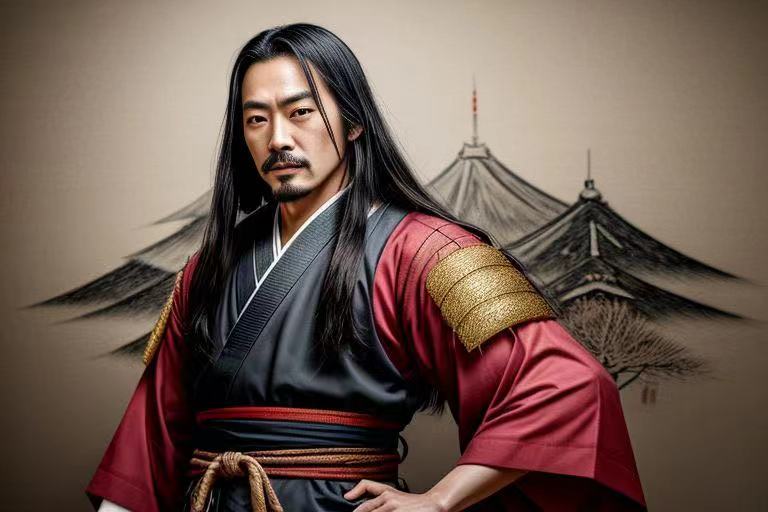The Unifier of Japan: Oda Nobunaga's Legacy
- Japanese Kanji: 織田 信長
- Japanese Kana: おだ のぶなが
- Hepburn romanization: Oda Nobunaga

Oda Nobunaga, born on June 23, 1534, in Nagoya, was a pivotal figure in Japanese history, known for initiating the unification of Japan during the late Sengoku period. His military innovations and ruthless tactics dismantled the power of established clans and disrupted the status quo, setting the stage for a modernized Japan.
Early Life and Rise to Power
Nobunaga was the eldest son of Oda Nobuhide, a minor warlord with ambitions that would eventually fall on his son’s shoulders. At an early age, Nobunaga was given the fortress of Nagoya Castle, a significant act that marked him as his father’s successor. Despite his unconventional and often erratic behavior in his youth, Nobunaga displayed a strategic mind and a fierce determination.
His rise to power began in earnest after his father's death in 1551, when Nobunaga secured his position within the Oda clan through decisive and often brutal actions against his rivals. By 1560, he had significantly expanded his influence and territory, showcasing his military prowess and innovative tactics during the Battle of Okehazama, where he defeated a much larger force led by Imagawa Yoshimoto.
Strategies and Innovations
Nobunaga was not just a skilled warrior; he was a revolutionary in military tactics and governance. He utilized the matchlock gun, brought to Japan a few decades earlier by the Portuguese, transforming warfare in his favor. His strategic use of firearms at the Battle of Nagashino in 1575 is often cited as a turning point in Japanese military history.
Moreover, Nobunaga was a pioneer of economic and social reforms. He implemented policies that promoted free trade and market economies, which helped stabilize the economy and supported military campaigns. His Rakuichi-Rakuza policy abolished monopolistic guilds, boosting economic growth and securing crucial resources for war efforts.
Path to Unification
Nobunaga’s ambition was the unification of Japan, a vision that had seemed impossible due to the fragmented nature of feudal Japan, where numerous daimyōs battled for power. Through alliances, conquests, and the dismantling of the Ashikaga Shogunate, he set the foundation for modern Japan. His campaigns across the Ise Province and against the Buddhist warrior monks of the Ikkō-ikki further demonstrated his resolve to break any resistance to his rule.
His efforts, however, were not without controversy. Nobunaga was known for his ruthless tactics, which included the mass murder of civilians during the suppression of the Ikkō-ikki uprisings. His aggressive policies and disregard for traditional Buddhist institutions earned him enemies and sowed fear among his rivals.
Conclusion and Legacy
Oda Nobunaga’s unforeseen death in 1582 during the Honnō-ji Incident, where he was betrayed by his own general Akechi Mitsuhide, marked a significant but not terminal point in Japan’s path to unification. His vision and groundwork were carried forward by his successors, Toyotomi Hideyoshi and Tokugawa Ieyasu, who completed the unification of Japan.
Nobunaga’s legacy is a complex tapestry of fierce ambition, innovative leadership, and brutal tactics. His impact on Japanese history is undeniable, as he set the stage for the end of the feudal era and the emergence of a centralized government. His strategies and reforms have left a lasting mark on the military and governance structures of Japan, making him a figure of both reverence and controversy in Japanese history.